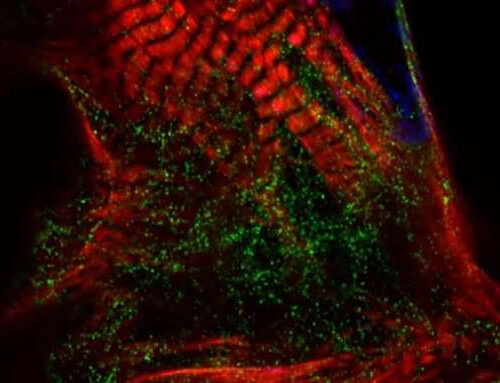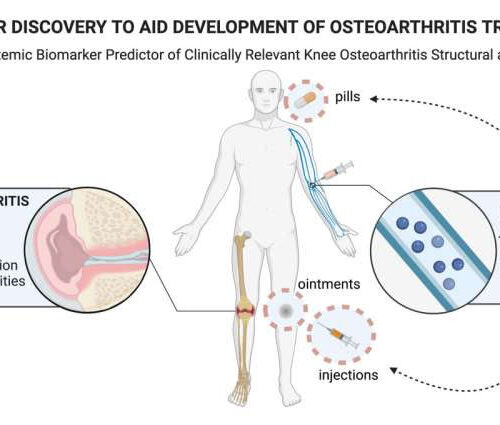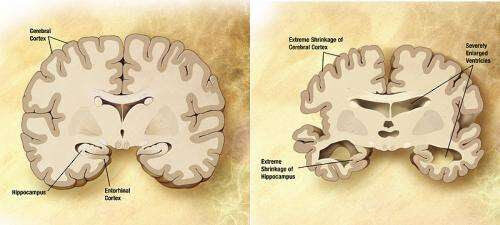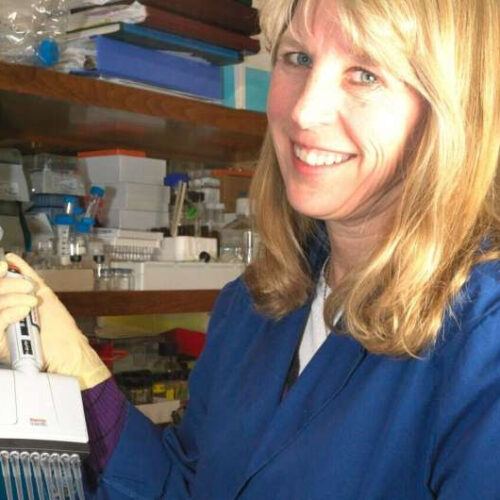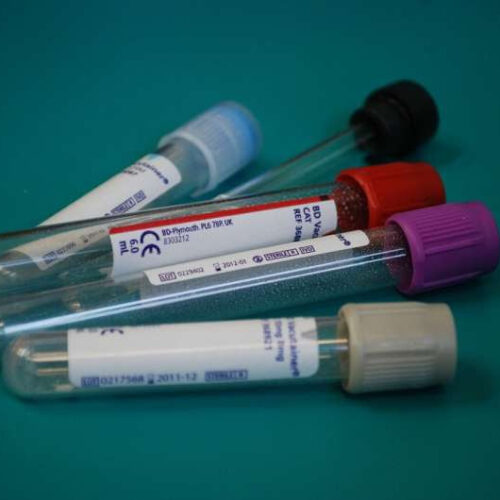CNN Testing a person’s blood for a type of protein called phosphorylated tau, or p-tau, could be used to screen for Alzheimer’s disease with “high accuracy,” even before symptoms begin to show, a new study suggests. The study involved testing blood for a key biomarker of Alzheimer’s called p-tau217, which increases at the same time...
Tag: <span>New blood test</span>
New blood test could save lives of heart attack victims
by University of Oxford NPY receptors (in green) on human iPS cardiomycytes. Credit: Ms. Carla Handford, Dr. Kun Liu, Dr. Dan Li Researchers from the Herring group in Oxford’s Department of Physiology, Anatomy and Genetics have developed a blood test that measures stress hormone levels after heart attacks. The test—costing just £10—could ensure patients receive timely...
New blood test is more accurate in identifying osteoarthritis progression
by Duke University Medical Center A ‘Best-in-Class’ Systemic Biomarker Predictor of Clinically Relevant Knee Osteoarthritis Structural and Pain Progression. Credit: Duke Health A new blood test that can identify progression of osteoarthritis in the knee is more accurate than current methods, providing an important tool to advance research and speed discovery of new therapies. The test relies...
New blood test to identify infections could reduce global antibiotic overuse
by Nina Bai, Stanford University Medical Center Tuberculosis bacteria replicate inside human cells, as viruses do. A blood test developed at Stanford Medicine can distinguish between such bacteria and viruses with 90% accuracy. Credit: Kateryna Kon/Shutterstock In developing countries, most antibiotic prescriptions are not only pointless—an estimated 70% to 80% of them are given for...
New blood test can detect ‘toxic’ protein years before Alzheimer’s symptoms emerge, study shows
by University of Washington Diagram of the brain of a person with Alzheimer’s Disease. Credit: Wikipedia/public domain. Today, by and large, patients receive a diagnosis of Alzheimer’s only after they exhibit well-known signs of the disease, such as memory loss. By that point, the best treatment options simply slow further progression of symptoms. But research...
New blood test for ALS promises rapid diagnosis
by Brain Chemistry Labs Dr. Sandra Banack at Brain Chemistry Labs preparing microRNA analysis of ALS patient blood samples. Credit: Paul Alan Cox Patients with ALS, one of the most serious neurological diseases known, have been hampered by the time it takes to receive an accurate diagnosis. The period between the onset of symptoms and...
New blood test can help doctors diagnose tuberculosis and monitor treatment
by Tulane University Portrait of Tony Hu, the Weatherhead Presidential Chair in Biotechnology Innovation at Tulane University School of Medicine. Credit: Sally Asher, Tulane University Researchers at Tulane University School of Medicine have developed a new highly sensitive blood test for tuberculosis (TB) that screens for DNA fragments of the Mycobacterium tuberculosis bacteria that causes...
New blood test for the diagnostics of frontotemporal dementia
by University of Eastern Finland Credit: CC0 Public Domain Frontotemporal dementia is the second most common cause of dementia in the working-age population. Its diagnostics are complicated by the similar symptoms presented by patients with psychiatric disorders or other neurodegenerative diseases as well as the lack of reliable diagnostic tools for differentiating these patients from each...

